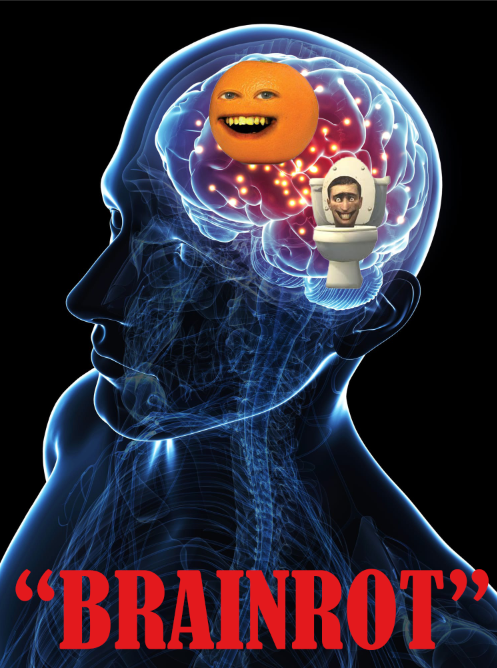First, it was books. Then, video games, Major League Gaming (MLG), Doritos and Mountain Dew, TikTok, and Skibidi Toilet. If there is one thing that all of these terms have in common, it is that, at some point, society disliked people who aligned themselves with it.
The term “brainrot” was coined as early as 2007, according to the New York Times in an article written by Jessica Roy, when pop culture revolved around the booming video game industry. Even earlier than that, there were examples of unordinary customs that people adopted, which the majority of civilization distrusted. This perspective has changed with each passing generation, but many agree that these practices have negatively impacted children’s minds.
Even before the terms “brainrot” or “cringe” were passed commonly between Internet users, there are examples of this type of behavior examined in the general population. For example, being literate. Dating back to the Victorian era, in the late 1600s, people who could read or write were viewed as witches or warlocks and were executed as a result. Senior Dalton Keith has looked into these peculiar events before and feels that they were practiced for a reason.
“For what they believed, there were witches around, they did not know who it would be or what they would do,” said Keith.
In this time period, people could not trust the new practices that people did – or did not – worship. Whether it was witchcraft 400 years ago or playing the latest video game just under two decades ago, many are wary of what these customs will do, especially to the human mind.
Later on, in the 1970s, a revolutionary invention came about Pong; the first-ever video game. Created on the Atari System, this simple, two-player game had no three-dimensional graphics, featured only one screen with two colors, and had little more to offer than virtual tennis. This invention was so unique at its time that it was viewed as otherworldly. As a result, anybody who actively played it was associated with its outlandish qualities. History Teacher Scott Guilfoil has memories of his childhood and a clear vision of today’s generation and their tendencies with advanced technology.
“As adults, we feel like it is a waste of time,” said Guilfoil. “As adults, we did not have that.”
Due to the rapidly changing world of virtual technology, it can be difficult for the older generation to understand what the younger generation means by what they enjoy doing. As a result, it creates a rift between the age groups that also generates underlying distaste for whoever ends up at cross purposes with any given person.

With all this in mind, it is pivotal to also focus on who, or what created this association with these terms. Parents have a legacy of disapproval for most pop culture practices, one of the latest ones being the short language term “rizz”, which is associated with the word “charisma”. The worst part is that many people do not understand these new terms, and are forced to agree or ignore, despite not knowing what they might be agreeing with.
“When it comes to slang [short language] that we use nowadays, some people do not use it, so they get confused, and they say ‘oh, okay’ and laugh about it quietly,” said Keith. “But they are confused.”
Even with how quickly new short language terms and other revelations spread, there are people who are unfamiliar with the latest practices and find themselves in unknown situations. This can create anxiety and a feeling of loneliness. Generation Z has had to adjust to these situations, as what they once considered “the newest fad” has now disappeared from everyone’s minds, and a new generation has come up with its own.
“I have a hard time adjusting to this new stuff, I am old-fashioned,” said Guilfoil. “If it is not broken, do not fix it.”
Guilfoil, just like many others across several generations, can have trouble comprehending the latest trends or what people have already left behind, abandoned to be defined by one of many short language terms, “cringe-worthy”.
With that being said, there are people who believe that what they do is not considered brainrot, especially the generation that is being criticized for it, that being Generation Alpha. One of those people, Seventh Grader Madysen Howard, is someone who was brought into the world amid this changing perspective, but she believes that the practices are confusing to her as well. This highlights how not everybody is easily accustomed to what goes on, which can create an automatic distaste for unknown practices.
“With each new word created, I get increasingly confused about how people can understand these terms in such a short time,” said Howard.
No matter how long human society has run on, or will run on, everybody will have their own unique perspective on what cringe-worthy practices are. People have had to live with it, and they will continue to go on, from being the person who idolized the new tradition to being part of the culture that frowned upon it.



